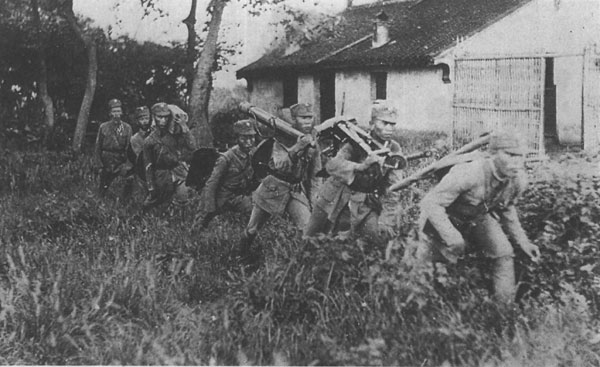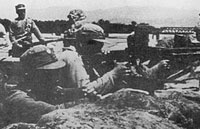 |
|
The second episode in a war documentary video series being released by China's State Archives Administration (SAA) has recalled the Battle of Songhu, one of the bloodiest battles during China's War of Resistance Against Japanese Aggression. [Photo/Xinhua] |
The episode, released on the administration's website on Tuesday, covers the Japanese navy's entry to Shanghai following Japan's occupation of Beijing and other northern cities in July, 1937.
 |
| China publishes video series on war against Japan's aggression |
The brutality of the battle was described as "unprecedented" as Chinese troops held the fort until November, when they pulled out to prevent further casualties. Shanghai fell on Nov 11.
The first major engagement between China and Japan, the battle lasted three months and saw huge casualties on both sides.
According to the video, the battle drew the Japanese army's focus from north China to the east, granting enough time for China to move some of its vital industries further inland.
The first episode in the video series was released on Monday on the SAA's website.
It is currently on a promotional drive to raise awareness of the war, having recently finished publishing a series of confessions by Japanese war criminals.
China will hold national memorial activities on Sept 3 to mark "Victory Day," the day after the Japanese government officially surrendered in 1945.
